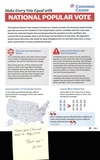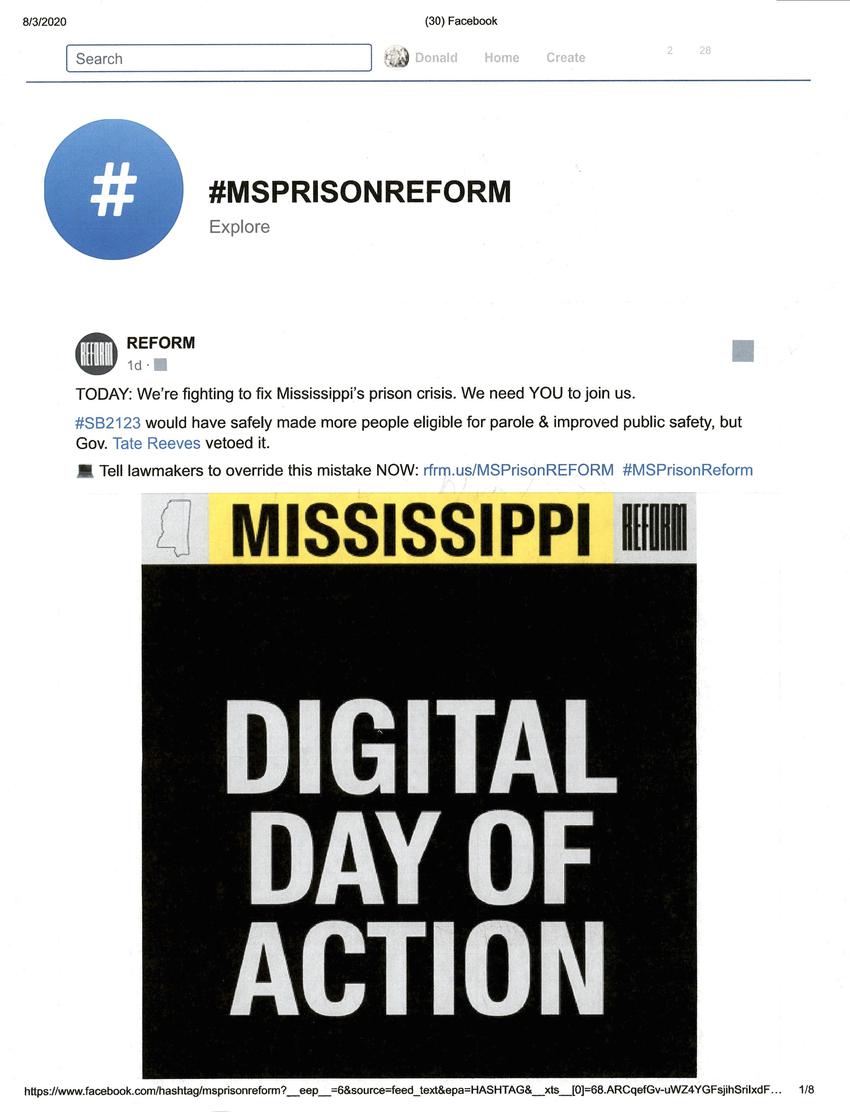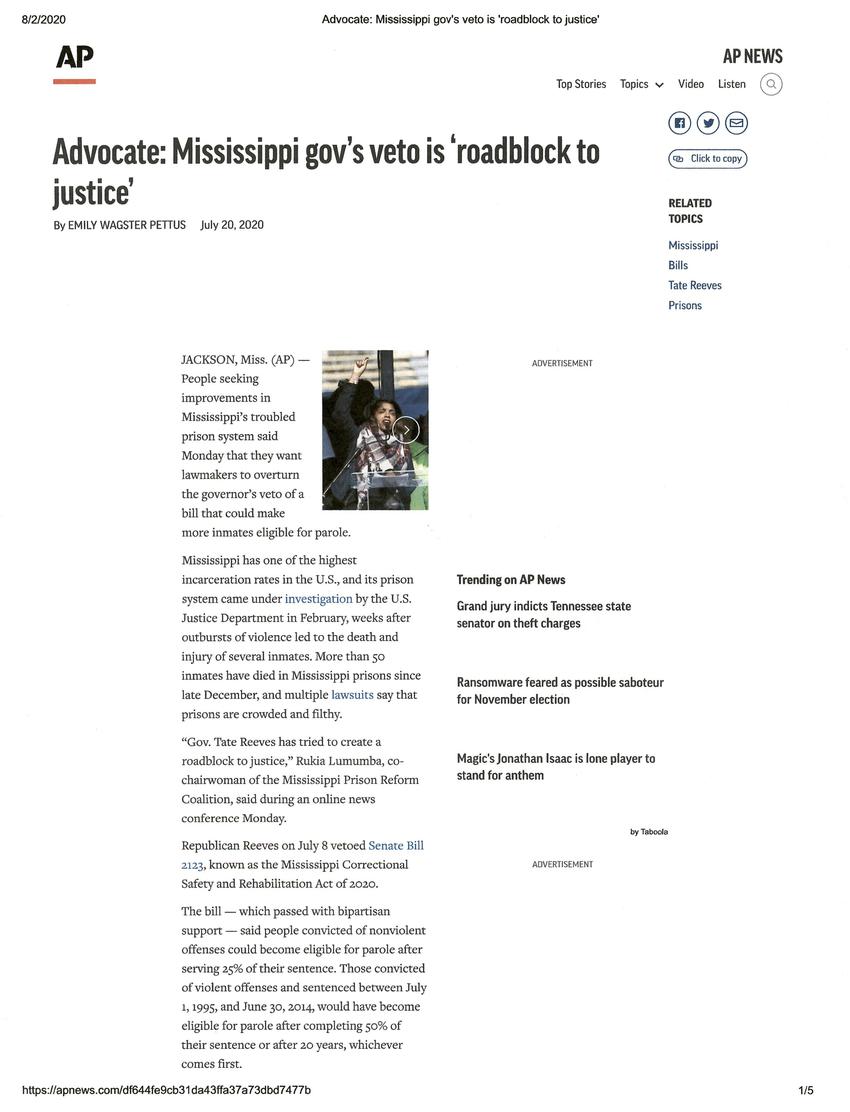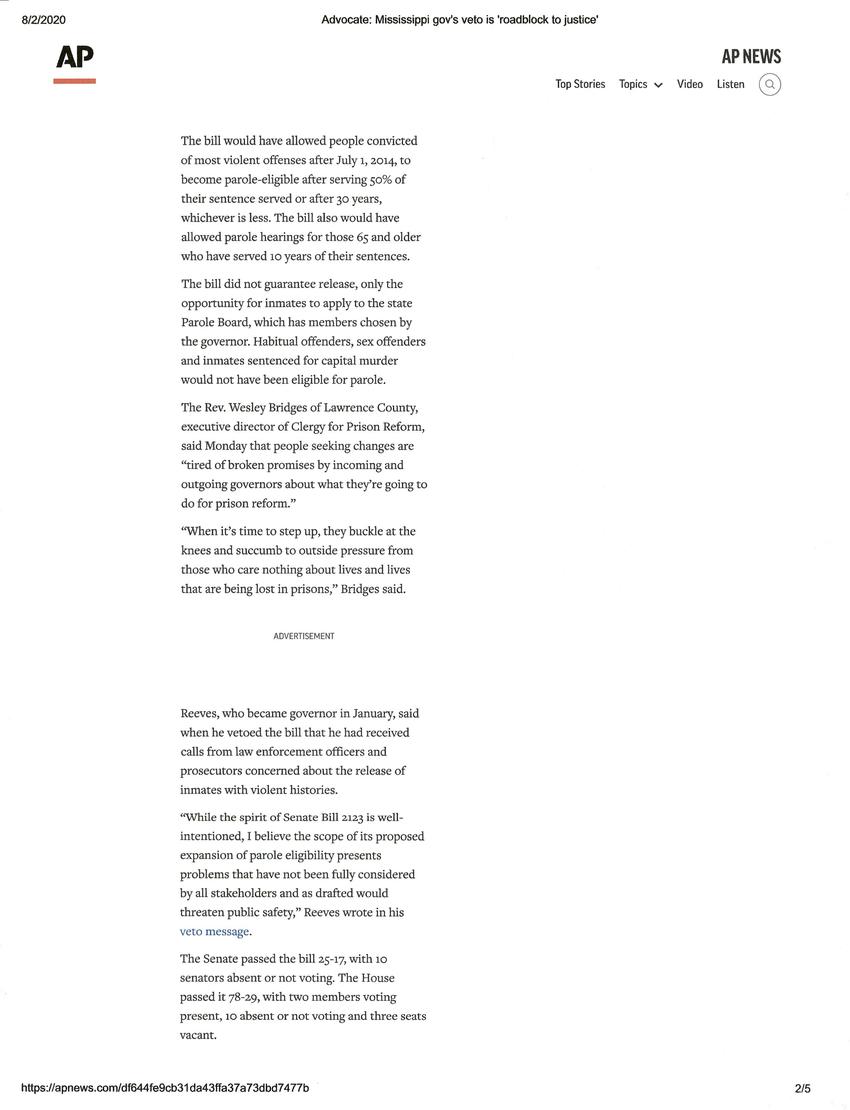
Transcription
#MSPRISONREFORM
Explore
Reform
TODAY: We're fighting to fix Mississippi's prison crisis. We need YOU to join us. #SB2123 would have safely made more people eligible for parole & improved public safety, but Gov. Tate Reeves vetoed it.
Tell lawmakers to override this mistake NOW: rfrm.us/MSPrisonREFORM #MSPrisonReform
MISSISSIPPI REFORM
DIGITAL DAY OF ACTION
Advocate: Mississippi gov's veto is 'roadblock to justice'
By Emily Wagster Pettus July 20, 2020
Jackson, Miss. (AP) -- People seeking improvements in Mississippi's troubled prison system said Monday that they want lawmakers to overturn the governor's veto of a bill that could make more inmates eligible for parole.
Mississippi has one of the highest incarceration rates in the U.S., and its prison system came under investigation by the U.S. Justice Department in February, weeks after outbursts of violence led to the death and injury of several inmates. More than 50 inmates have died in Mississippi prisons since late December, and multiple lawsuits say that prisons are crowded and filthy.
"Gov. Tate Reeves has tried to create a roadblock to justice," Rukia Lumumba, co-chairwoman of the Mississippi Prison Reform Coalition, said during an online news conference Monday.
Republican Reeves on July 8 vetoed Senate Bill 2123, known as the Mississippi Correctional Safety and Rehabilitation Act of 2020.
The bill--which passed with bipartisan support--said people convicted of nonviolent offenses could become eligible for parole after service 25% of their sentence. Those convicted of violent offenses and sentenced between July 1, 1995, and June 30, 2014, would have become eligible for parole after completing 50% of their sentence or after 20 years, whichever comes first.
The bill would have allowed people convicted of most violent offenses after July 1, 2014, to become parole-eligible after service 50% of their sentence served or after 30 years, whichever is less. The bill also would have allowed parole hearings for those 65 and older who have served 10 years of their sentences.
The bill did not guarantee release, only the opportunity for inmates to apply to the state Parole Board, which has members chosen by the governor. Habitual offenders, sex offenders, and inmates sentenced for capital murder would not have been eligible for parole.
The Rev. Wesley Bridges of Lawrence County, executive director of Clergy for Prison Reform, said Monday that people seeking changes are "tired of broken promises by incoming and outgoing governors about what they're going to do for prison reform."
"When it's time to step up, they buckle at the knees and succumb to outside pressure from those who are nothing about lives and lives that are being lost in prisons," Bridges said.
Reeves, who became governor in January, said when he vetoed the bill that he had received calls from law enforcement officers and prosecutors concerned about the release of inmates with violent histories.
"While the spirit of Senate Bill 2123 is well-intentioned, I believe the scope of its proposed expansion of parole eligibility presents problems that have not been filly considered by all stakeholders and as drafted would threaten public safety," Reeves wrote in his veto message.
The Senate passed the bill 25-17, with 10 senators absent or not voting. The House passed it 78-29, with two members voting present, 10 absent or not voting and three seats vacant.
legislators, but they did not indicate whether they've lined up enough support for an override.
Legislators have been away from the Capitol since July 1 and some have had COVID-19. Leaders have not said when the House and Senate might return.
Follow Emily Wagster Pettus on Twitter at
http://twitter.com/EWagsterPettus.
Other posts by this author
|
2023 may 31

|
2023 mar 20

|
2022 aug 23

|
2022 aug 23

|
2022 aug 23

|
2022 aug 23

|
More... |





Replies